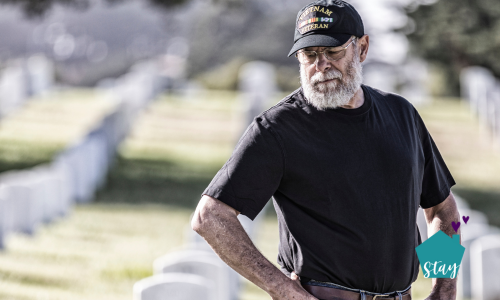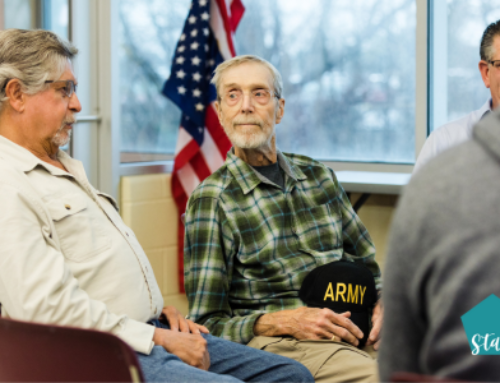 As we honor and celebrate the bravery and sacrifice of our veterans, it’s crucial to shine a spotlight on an often overlooked aspect of their well-being: mental health. The many psychological challenges that veterans face, such as depression, anxiety, and substance abuse, must be addressed in order for them to live a fulfilling life after they have completed their service. Fortunately, there are strategies that these individuals can utilize to promote their mental wellness and overcome these obstacles.
As we honor and celebrate the bravery and sacrifice of our veterans, it’s crucial to shine a spotlight on an often overlooked aspect of their well-being: mental health. The many psychological challenges that veterans face, such as depression, anxiety, and substance abuse, must be addressed in order for them to live a fulfilling life after they have completed their service. Fortunately, there are strategies that these individuals can utilize to promote their mental wellness and overcome these obstacles.
Common Veteran Mental Health Issues
Anxiety disorders are extremely common after experiencing stressful events. After their time serving, veterans often experience lingering anxiety that can worsen over time, with symptoms such as a racing pulse, nightmares, and excessive worry or fear that consumes their everyday lives. Panic disorders, phobias, and PTSD may develop if the anxiety is lasting and left unaddressed.
Post-Traumatic Stress Disorder (PTSD) is an anxiety disorder commonly linked with veterans. Reliving the event; experiencing negative changes in beliefs and feelings; avoiding situations that remind them of the events that caused their trauma; and feeling keyed up, or hyperarousal, are all symptoms of PTSD that tend to not go away over time.
Depression, one of the most common and costly mental health challenges, causes sadness, loss of interest in activities people once enjoyed, withdrawal from others, lack of energy, feelings of hopelessness about the future, and even suicidal thoughts.
Substance abuse is unfortunately also very common among veterans. Many of these individuals have problems with alcohol, tobacco, street drugs, and prescription medicines. These problems often stem from other issues faced by veterans, such as other mental health disorders, homelessness, criminal justice involvement, or unemployment.
The Role of In-Home Care Services in Supporting Veterans’ Mental Health
An experienced professional in-home care service such as Home to Stay may be the best option to help your veteran loved one overcome these obstacles, as they provide personalized care tailored to meet each individual’s specific needs. In-home caregivers are trained to recognize signs of distress or behavioral changes that may indicate underlying mental health issues and can provide emotional support and companionship to help veterans cope with these challenges.
Additionally, in-home care services offer assistance with activities of daily living (ADLs), medication management, transportation to medical appointments, and coordination of care with healthcare providers – all of which are essential components for maintaining good mental health outcomes for veterans. By offering compassionate and specialized care within the comfort of their own homes, in-home care services contribute significantly to improving the overall quality of life for our nation’s veterans while promoting positive mental health outcomes.
Strategies for Promoting Mental Wellness Among Veterans
Social engagement is a key component in improving veterans’ mental health, as connecting with peers who understand their experiences can help reduce feelings of isolation and increase self-esteem. Recreational activities such as sports or hobbies also assist in mental wellness by offering opportunities for relaxation and enjoyment while also promoting physical fitness.
In addition, mental health professionals can offer specialized care tailored to the needs of each individual veteran, including therapy sessions, medication management, and coping strategies for managing symptoms. Over 1.7 million veterans received mental health services at the VA last year. Visit their website to learn more about mental health resources and how to get started.





